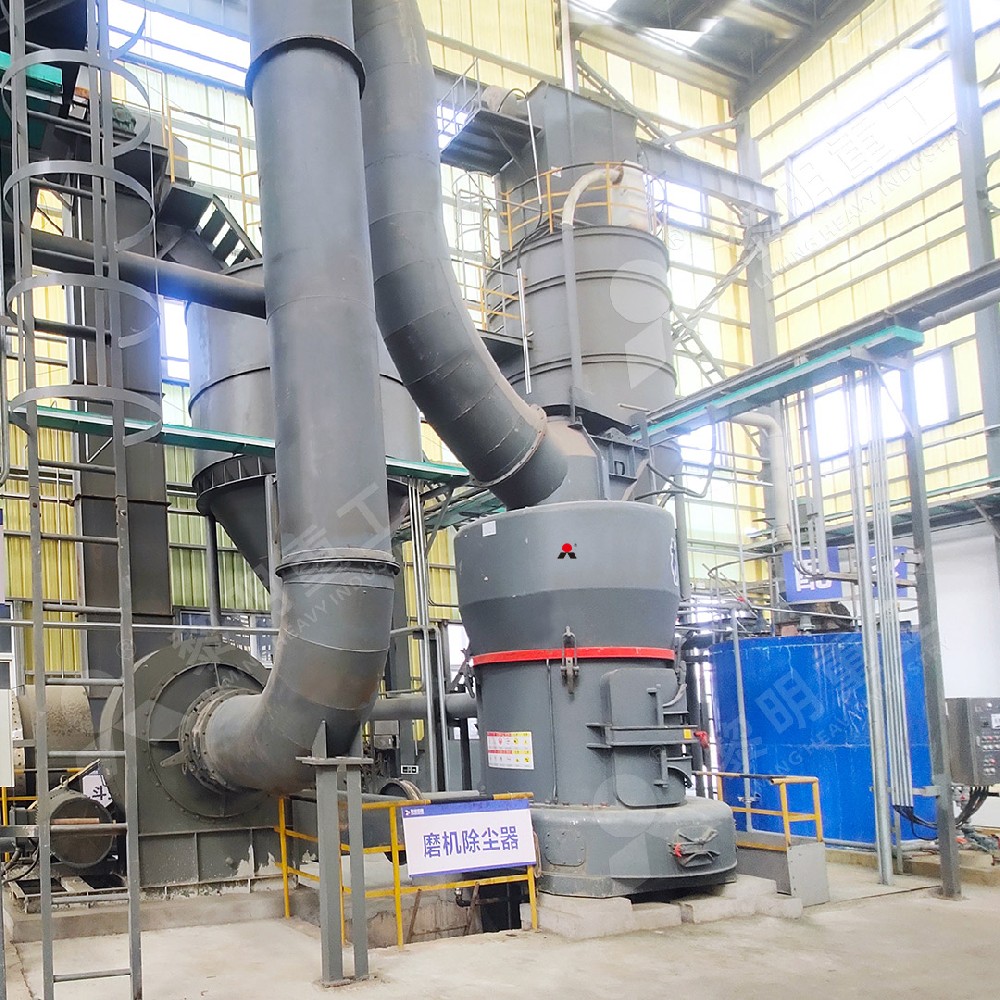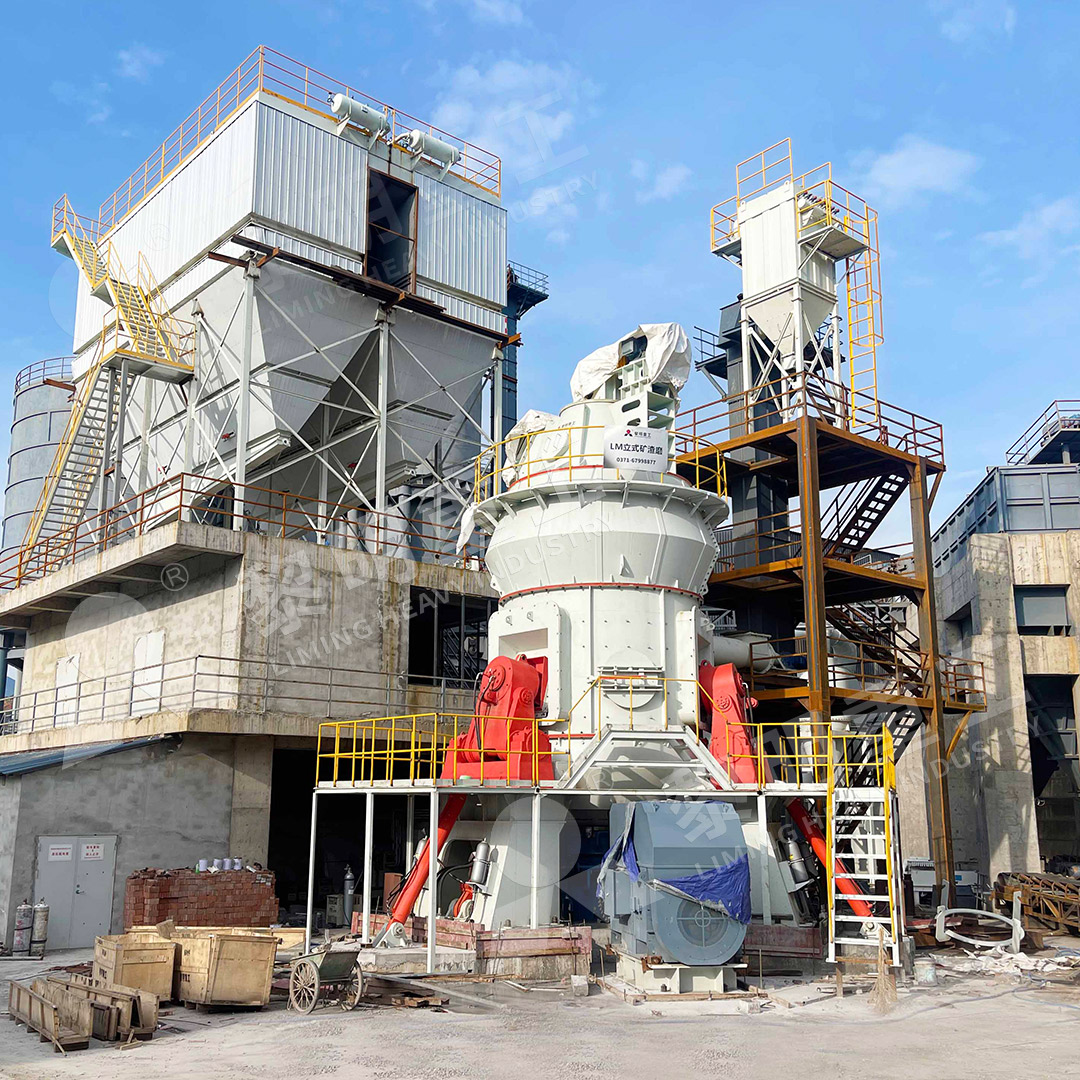In the world of industrial minerals, calcium carbonate (CaCO3) stands as a true workhorse, finding indispensable applications across industries from plastics and paints to adhesives and pharmaceuticals. However, its functionality and value are intrinsically tied to one critical characteristic: particle size. Among the various standards, 325-mesh (approximately 45 microns) represents a pivotal grade, often considered the benchmark for high-quality fillers and additives. Achieving this specific fineness consistently and efficiently is not a matter of chance but of engineering precision, delivered by advanced 325-mesh calcium carbonate grinding mills.
The significance of the 325-mesh standard cannot be overstated. In the plastics industry, CaCO3 of this fineness improves tensile strength and impact resistance while reducing production costs. In paints and coatings, it ensures optimal dispersion, enhances opacity, and improves brushability. For paper manufacturing, it contributes to brightness, opacity, and a smooth surface finish. A deviation in particle size distribution can lead to compromised product quality, such as surface roughness, diminished mechanical properties, or unstable chemical reactions. Therefore, the grinding mill is not just a piece of comminution equipment but a core component of the value-addition process, transforming raw limestone into a high-value, specification-grade product.
Several grinding mill technologies are capable of producing 325-mesh calcium carbonate, each with its unique advantages tailored to different production goals and investment levels.
Raymond Mill (Pendulum Roller Mill): A classic and widely used technology for grinding up to 325-mesh. Its robustness, reliability, and relatively low capital cost make it a popular choice for many small to medium-scale operations. Modern Raymond mills feature advanced impeller classifiers that allow for precise control over the fineness, ensuring a consistent 325-mesh product.

Vertical Roller Mill (VRM): For large-scale production with an emphasis on energy efficiency, the VRM is the technology of choice. It integrates grinding, drying, and classification in a single unit. By utilizing a grinding table and hydraulically-loaded rollers, it grinds the material with exceptional energy efficiency. Integrated dynamic classifiers provide tight particle size control, making it ideal for high-tonnage output of 325-mesh calcium carbonate.

Ball Mill with Classifier: This is a traditional and highly effective closed-circuit system. The ball mill grinds the material via collision using steel balls, and the resulting powder is transported to an air classifier. The classifier acts as a precision sieve, continuously rejecting oversize particles back to the mill for regrinding and allowing only the perfectly sized 325-mesh product to pass through. This system offers great flexibility and can achieve very high uniformity.
The selection of the optimal mill should be based on a comprehensive analysis of key factors:
Required Capacity: From a few tons per hour to large-scale production.
Energy Consumption: VRMs typically offer the lowest kWh/ton for high-capacity applications.
System Automation: Modern mills with PLC controls ensure stable operation, reduce human error, and allow for remote monitoring.
Turnkey Solution: Consider suppliers who can provide the entire system, including crushing, feeding, grinding, classifying, dust collecting, and packaging.
In conclusion, investing in a dedicated 325-mesh calcium carbonate grinding mill is a strategic decision to enhance product quality, reduce operational costs, and strengthen market competitiveness. By understanding the capabilities of different grinding technologies and aligning them with specific production needs, manufacturers can unlock the full potential of this versatile mineral.
RFQ 2 Subject: RFQ for a Calcium Carbonate Grinding Mill for Plastic Filler Production
Dear Supplier,
We are a plastic compounding manufacturer looking to establish a new production line for calcium carbonate filler. We require a grinding mill capable of producing a consistent 325-mesh product with a capacity of 3-5 tons per hour.
Please provide a quotation for a complete system, including:
Main grinding mill
Necessary feeder and dust collector
Control panel
We also request information on lead time, warranty, and availability of after-sales service.
RFQ 2 Subject: Technical and Commercial Proposal for 325-Mesh Coating-Grade CaCO3 Grinding Plant
Dear Friend
We are planning a project to upgrade our current coating material production. A key requirement is a reliable grinding solution to produce high-purity, 325-mesh calcium carbonate with excellent whiteness and uniform particle distribution.
We are interested in a Vertical Roller Mill solution and request a detailed proposal for a system with a capacity of 15 tons per hour. The proposal should include:
Detailed technical specifications of the VRM and its classifier.
Layout and footprint of the entire plant.
Total installed power and projected energy consumption.
Commercial quotation (FOB or CIF).
List of reference projects.
RFQ 3 Subject: RFQ for a Turnkey 325-Mesh Calcium Carbonate Grinding Production Line
Dear Sir/Madam,
We require a complete turnkey project for a new calcium carbonate grinding plant. The final product must be 325-mesh, with an expected output of 20 tons per hour.
We need a single supplier responsible for the design, manufacture, installation, and commissioning of the entire line, including but not limited to:
Raw material crushing and storage
Grinding mill system (please recommend the best technology)
Powder conveying and packaging system
Electrical control and automation system
Environmental dust control system
Please provide a comprehensive project proposal and quotation.





